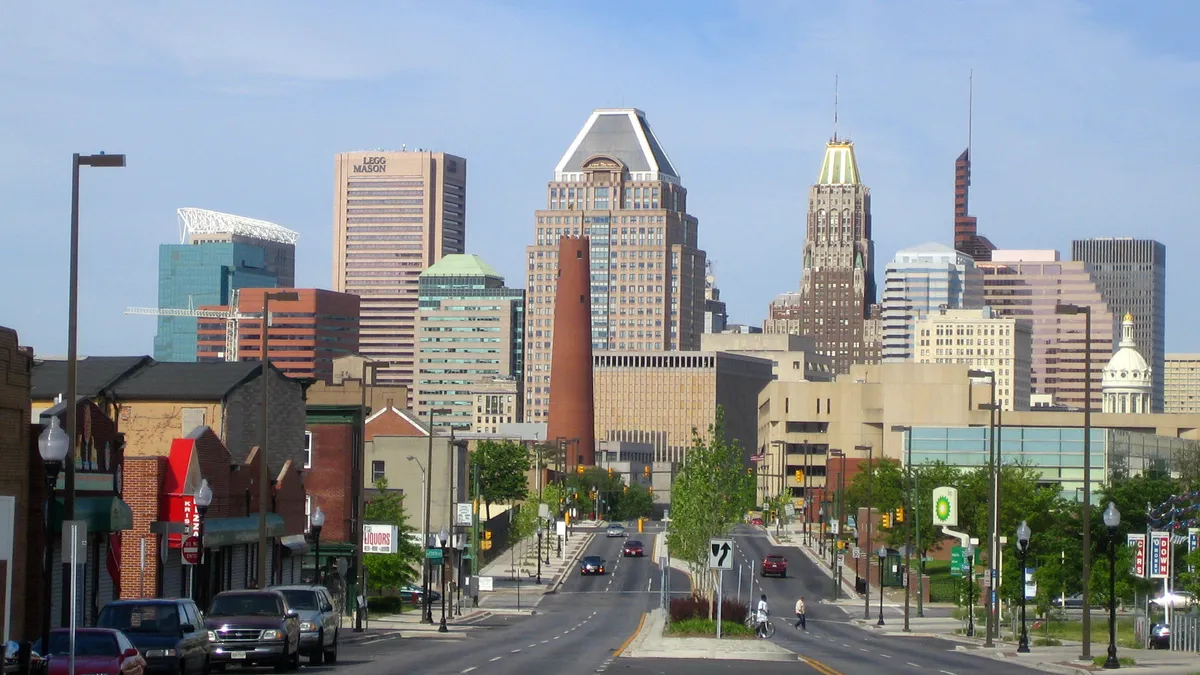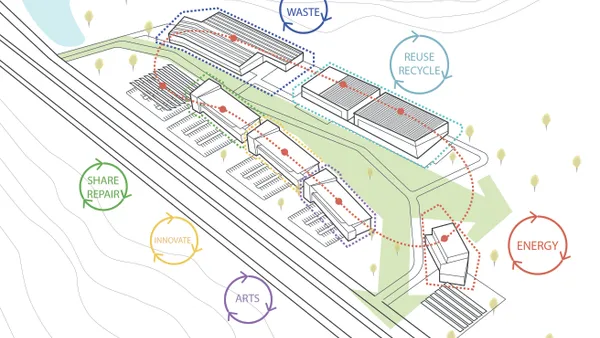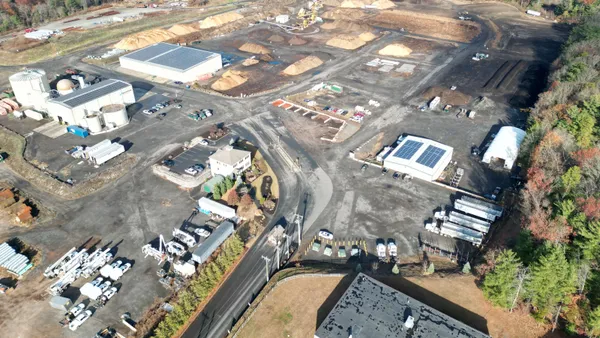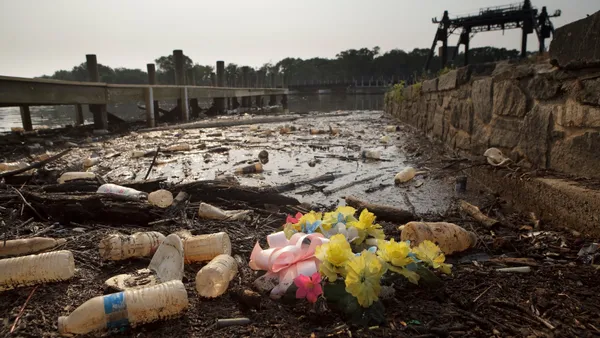Dive Brief:
- Baltimore Councilmember Mary Pat Clarke introduced a resolution last week, titled "Improving Development of a Baltimore City Recycling and Solid Waste Management Master Plan," which calls on the Northeast Maryland Waste Disposal Authority to reissue a request for proposals (RFP) that better aligns with the city's commitment to zero waste policies.
- The city's Department of Public Works had issued an RFP, titled "Less Waste, Better Lives: Developing Baltimore City’s Recycling and Solid Waste Management Master Plan for 2040 (Master Plan) and beyond," for consultants to bid on a $450,000 contract to help develop the plan. The Northeast Maryland Waste Disposal Authority only allowed six consultants, which were supposedly pre-screened, to respond to the RFP, according to environmental advocates Energy Justice Network.
- Energy Justice Network, Institute for Local Self Reliance (ILSR) and United Workers claim the 11-page RFP suggests comprehensive studies of the use of the contentious Baltimore Refuse Energy Systems Company (BRESCO) incinerator. The groups also claim the six unnamed consultants have little experience in zero waste planning.
Dive Insight:
Use of the city's BRESCO incinerator has long been a topic of controversy in the city due to environmental and economic concerns. The Wheelabrator facility has been called Baltimore's single-biggest source of air pollution and has been a popular targets for community activists. In April, the Maryland Senate approved a bill to remove a "green energy" label from the facility.
Baltimore's "zero waste" plans have also caused controversy since Republican Gov. Larry Hogan entered office and repealed the 2015 "zero waste" executive order put in place by former Democratic Gov. Martin O'Malley. At the time, Hogan said, "We're replacing that last-minute, ill-conceived and poorly devised policy with a common sense, balanced approach to managing waste in Maryland which lifts that state mandate on permitting and re-configures recycling rates to realistic, reasonable and achievable levels."
Shortly after, Hogan's office released a five-page executive order laying out details for a new "Waste Reduction and Resource Recovery Plan." Some read Hogan's plan as taking a neutral stance on WTE, while some saw lines calling for the city "to research and promote methods of recovering energy from waste, including anaerobic digestion," as tacit support.
As environmental groups push to reduce or eliminate use of the BRESCO incinerator through 2040, they tout other opportunities derived from zero waste methods such as recycling, reuse and composting. According to ILSR, Oakland, California, which is a similar size to Baltimore, has successfully created 1,000 jobs through non-incineration processes.
While the debate in Baltimore continues, there is no clear industry-wide agreement on what "zero waste" means — and whether it should or shouldn't include incineration. As more communities embrace "zero waste" goals, it will be increasingly important to have a clear message about what those goals mean, and how they are to be achieved — or stakeholders risk losing public buy-in.















